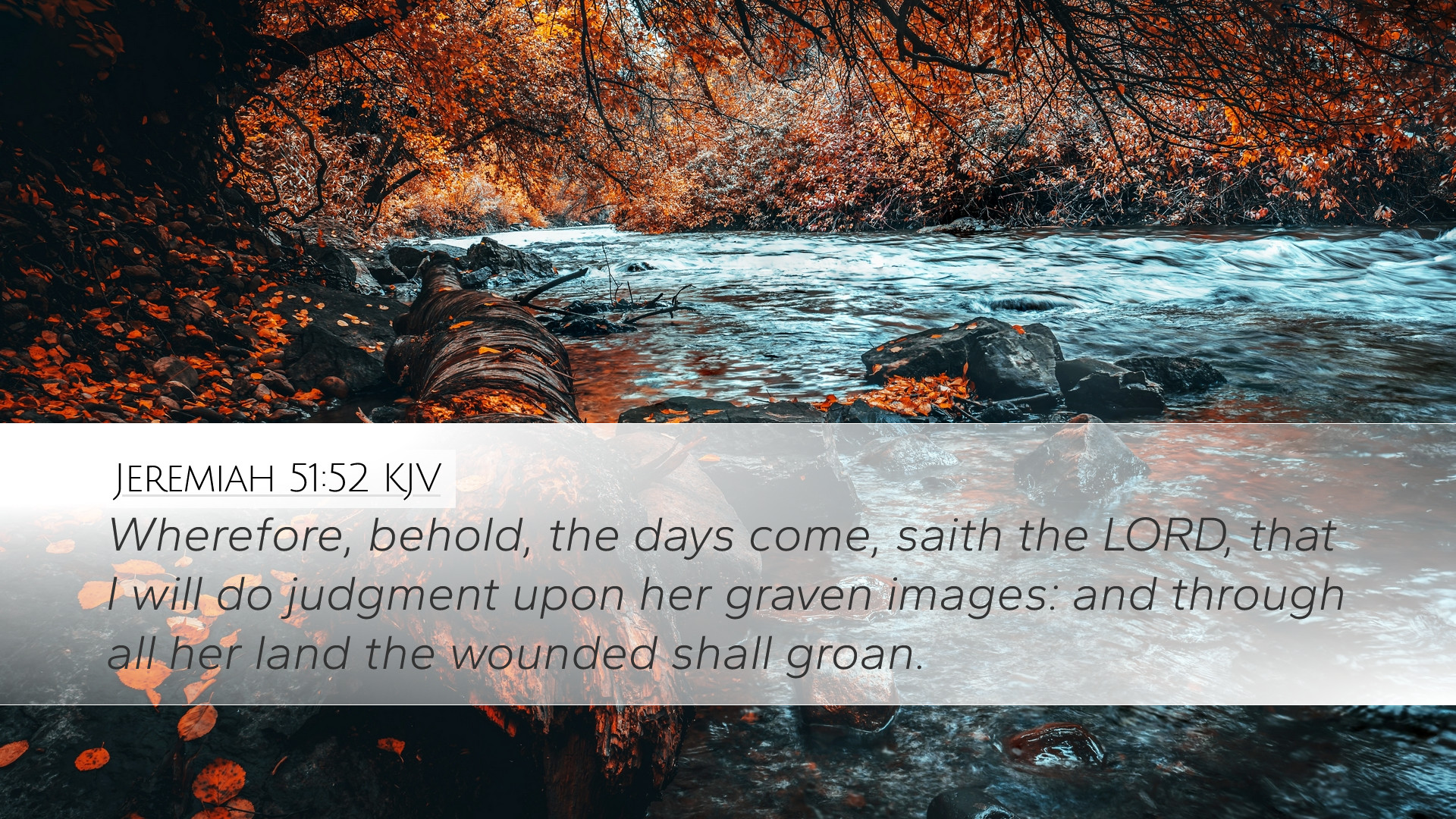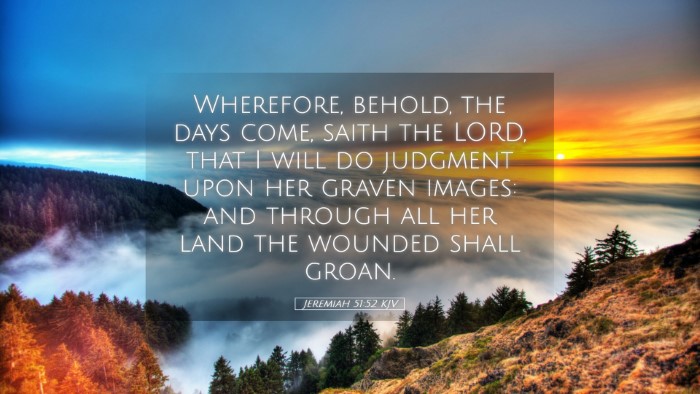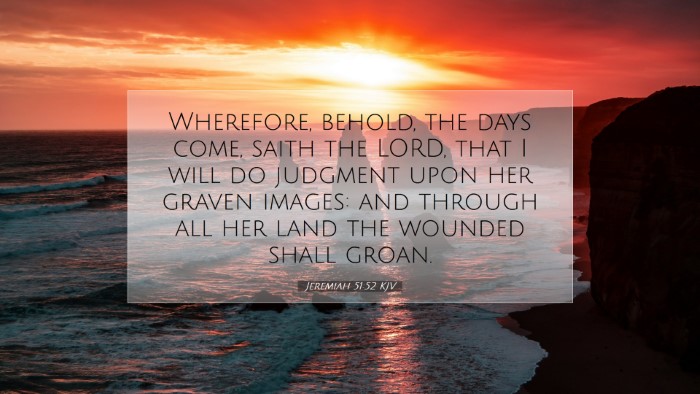Commentary on Jeremiah 51:52
Bible Verse: Jeremiah 51:52 - "Wherefore, behold, the days come, saith the LORD, that I will execute judgment upon her graven images: and through all her land the wounded shall groan."
Contextual Overview
The verse in question stands firmly within the broader scope of Jeremiah's prophecies regarding the impending judgment of Babylon. This chapter is part of a section where God declares that He will punish Babylon for its pride, idolatry, and persecution of His people. Here, the emphasis is placed on the destruction of Babylon’s idols, indicating the futility of worshiping false gods.
Theological Insights
This passage has profound theological implications that resonate with the themes of divine justice and the sovereignty of God over nations. The following insights synthesized from notable public domain commentaries provide a deeper understanding:
Matthew Henry’s Commentary
- On Judgment: Henry emphasizes that the judgment upon Babylon signifies God's displeasure with idolatry. He notes that “the graven images” symbolize the impotency of false gods, which can neither protect their worshipers nor avert God’s judgment.
- The Wounded Groaning: The reference to the “wounded” embodies the suffering that results from God’s judgment. Henry expounds that this groaning represents the lament of those affected by the fall of a once-prosperous city, a stark reminder of the consequences of turning away from true worship.
- Broader Application: He advises readers to recognize the dangers of idolatry in their own lives—anything that takes precedence over God can become an idol. This serves as a sobering reminder of both personal and corporate accountability before the Lord.
Albert Barnes’ Notes on the Bible
- Imagery of Destruction: Barnes elaborates on the phrase "I will execute judgment upon her graven images." He argues that this indicates a direct confrontation between God’s sovereignty and the false claims of Babylon’s deities. He illustrates that Babylon relied heavily on its idols, which ultimately failed to save it from God’s wrath.
- Judgment as a Form of Restoration: In Barnes' view, this judgment is not merely punitive; it is also restorative. He suggests that God’s intent is to clear away the barriers that prevent true worship of Him, which calls for a deeper reconciliation between God and His people.
- Lessons on National Accountability: Barnes insists that nations today should heed this message against idolatry, acknowledging that divine judgment is not restricted to ancient Babylon but serves as a warning to contemporary civilizations that engage in similar practices.
Adam Clarke’s Commentary
- A Call to Repentance: Clarke interprets this verse as a divine call to repentance, pointing out that God’s judgment highlights His desire for nations to return unto Him. He emphasis on the necessity for spiritual renewal.
- Wounded and Groaning: He also examines the emotional weight of the term “wounded,” suggesting that the groaning reflects both spiritual desolation and physical suffering caused by God’s retribution against sin. This dual aspect of punishment serves as a profound reminder of the seriousness of turning away from God.
- Implications for the Church: Clarke reinforces the importance of the church’s prophetic voice in society, affirming that believers are called to expose the idols of modern culture and lead others back to a genuine relationship with God.
Practical Reflections
For pastors, theologians, and serious students of the Bible, this verse and its commentary provide several important reflections:
- Idolatry in Contemporary Culture: In today’s context, idolatry manifests in various forms, including materialism and secular ideologies. It is essential for the church to identify and address these idols in the lives of believers and the broader society.
- God’s Faithfulness to His Word: This passage serves as reassurance that God will fulfill His promises, particularly regarding judgment and justice. Believers can rest in the knowledge that God sees and responds to the injustices in the world.
- The Role of Suffering: The “groaning” of the wounded serves as a poignant reminder that suffering is often intertwined with divine justice. This can provide a lens through which believers can view current suffering—both personal and communal—as part of God’s redemptive plan.
- Call to Action: There is an urgent call for believers to engage in prayer and action advocating for justice and righteousness, proclaiming the truth of God’s word, and calling others to repentance.
Conclusion
Jeremiah 51:52 is a powerful reminder of God’s judgment against falsehood and idolatry. Through the insights of historic commentaries, it encourages readers to pursue a deeper understanding of their relationship with God, emphasizing the importance of worshiping Him in spirit and truth. As we reflect on this passage, may we seek to align our lives with God's will, proclaim His truth, and actively engage in the work of reconciliation in a world that desperately needs to hear the message of hope found in Jesus Christ.


